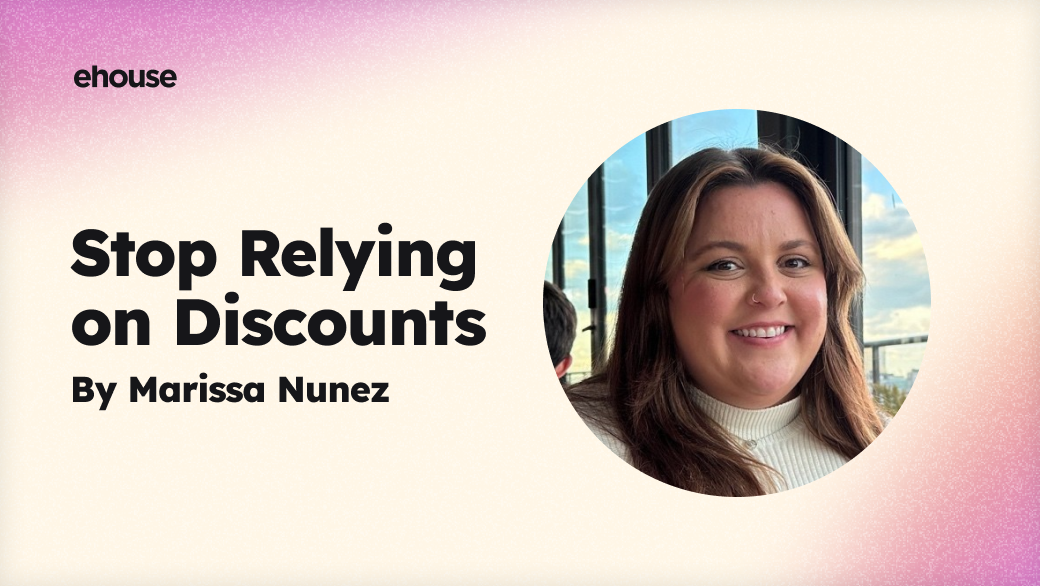Industry Trends
•
3 MIN READ
By Marissa Nunez, Director of CRM, Lifecycle & Retention Marketing Services

Tt the Styled for Success fireside chat, I joined Tyler Prete from Klaviyo on stage for an honest conversation about what’s working, what’s changing, and what brands need to rethink.
The panel started with a big question: “What’s the biggest theme you’re seeing this year?”
My answer was simple: consolidation.
Not just consolidating tools, but consolidating:
Brands are done stitching together six half-connected platforms just to send a single email. They want one place to understand everything: what’s happening, what’s working, and what needs to change.
Consolidation isn’t a tech decision; it’s a growth decision.
And it’s making teams dramatically more efficient.
AI on its own is just noise.
AI combined with unified data becomes a scalable personalization engine.
What does this mean for brands?
Stop sending mass messages. Start sending meaningful ones.
Customers don’t want:
They want communication that feels like it was actually meant for them even when it’s automated.
That requires understanding the customer journey as it really exists today: fragmented, nonlinear, and deeply personal. When AI is paired with consolidated data, you can finally deliver that level of relevance at scale.
Because automation isn’t the goal. Relevance is.
One of the audience questions I loved was “How should we segment sale shoppers vs. full-price shoppers without hurting conversions?”
Here are the practical tips I shared:
A “sale shopper” isn’t always price-sensitive. Sometimes they just happened to buy during a promo. Focus on behavior, not assumptions.
If it’s on your homepage, customers will see it anyway. No need to overthink segmentation.
Prioritize people who consistently engage, click, or buy. They value exclusivity more than the discount itself.
People who open and click often want to hear from you: full price or not. People who only respond to promos need a different content strategy, not deeper discounts.
Test it. Don’t guess.
And let the data decide.
One of my favorite questions was about storytelling and creative.
My biggest tip:
Use social as your testing ground before anything becomes evergreen.
Your social audience will tell you exactly what works:
Then you can take the winner and put it into your welcome series, your cart flow, your ads, or your homepage.
Let real customers validate your creative.
Not your internal meeting.
Attendees asked about KPIs. What should they be tracking besides the usual open/click/conversion?
The trend we’re seeing across top-performing brands is a shift toward measuring cycle time: how fast you can go from idea → implementation → results.
Speed is a competitive advantage. Consolidation shortens the distance between thinking and doing.
Sometimes efficiency looks like revenue. Sometimes it looks like giving your team back 45 minutes a day that used to be wasted hopping between four dashboards.
Both matter.
People love app recommendations (and I do too).
Here are the ones I called out:
The common thread?
Every tool above helps scale personalization and retention without adding complexity.
Not everyone needs a discount.
Not everyone cares about price.
Not every objection should be solved with a % off.
If you don’t know why customers aren’t buying, ask them with:
If the objection is quality, tell a quality story.
If the objection is fit, highlight size guidance or UGC.
If the objection is trust, use reviews and social proof.
If the objection is convenience, simplify shipping and returns.
A coupon is not a cure-all.
And over time, it trains your customers to wait for discounts they don’t even want.
The strongest brands in 2026 will win because customers believe in them, not because they had the best promo calendar.
The fireside chat reminded me that marketers everywhere are wrestling with the same questions:
But more than anything: how do we build trust and keep it?
You don’t build trust with discounts.
You build trust with relevance, clarity, great products, and consistent brand experience.
That’s what we talked about in the room and that’s where the industry is headed.
If you want help applying any of these ideas to your brand, reach out.
Me and my team are here to answer your questions.
Have an idea for a project? Fill out this form and we’ll get back to you shortly.